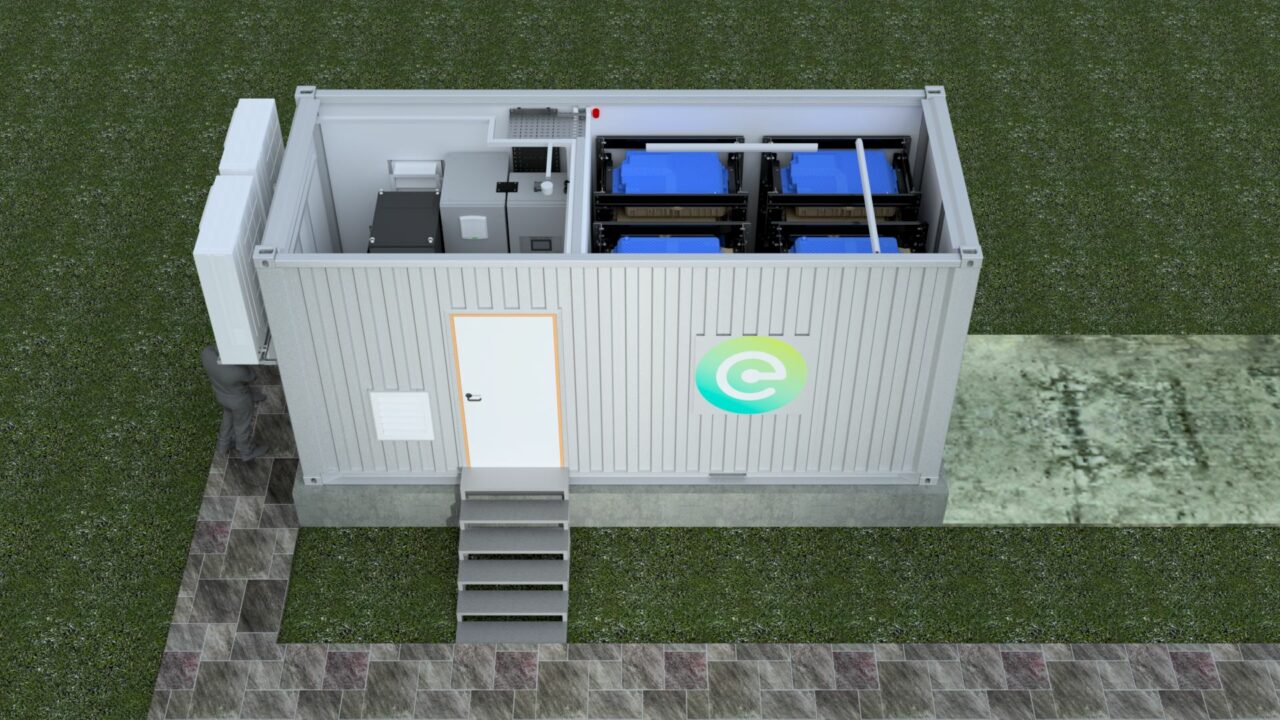
Image: Connected Energy.
Connected Energy is to install the first of its new generation of second life energy storage systems as part of a Suffolk County Council project.
The 300kW/360kWh E-STOR storage system will be installed at a flagship heritage facility – dubbed The Hold – due to open later in 2020 on the University of Suffolk’s Ipswich Campus.
The Hold – which will house the council’s archive collection – will have a low carbon energy system, with the storage to optimise energy use and peak loads across a system that features solar PV and electric vehicle chargers.
The system contains 24 second life Renault Kangoo batteries, with Renault and ABB having collaborated to increase the power and capacity efficiencies of the system.
The cost of cooling the system has been reduced due to Renault's battery performance modelling, as well assystem performance data and CFD analysis, according to Connected Energy. This has also resulted in new packaging, providing additional space to facilitate maintenance and house functionality such as EV charger integration.
Connected Energy CEO, Matthew Lumsden, said that the data-based design means “we can more accurately optimise how the batteries are used within any duty cycle and better manage efficiencies and degradation”.
The company is targeting a commerical and industrial customer base for its E-STOR system, describing The Hold as a good example of how “continuing changes in the regulatory and market environments are causing I&C customers’ requirements to vary”.
As part of the project, Connected Energy will also be working with the University of Suffolk on a knowledge exchange partnership with the aim of supporting research and innovation activities across both organisations. The collaboration is designed to allow access to the battery storage system for teaching and research purpose.
Justine Oakes, the University of Suffolk sustainability manager and research and business lead for the Suffolk Sustainability Institute, said this partnership will support “pragmatic academic study in smart tech renewables” and create a “deeper understanding of the role innovative technologies have to play in addressing the energy transition pathway to zero carbon through energy storage infrastructure”.
Second life battery storage has already been trialled in the UK, with EDF partnering Nissan in 2018 to launch an energy storage proposition using second life batteries with the utility’s proprietary Powershit demand side response (DSR) platform.
Connected Energy, meanwhile, is spearheading the Smart Hubs project, which is integrating a 14.4MWh energy storage system with a variety of other technologies invovled in the decarbonisation of heat, energy and transport.

